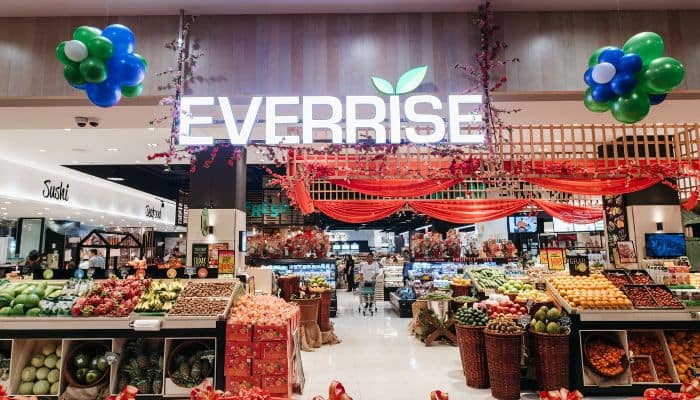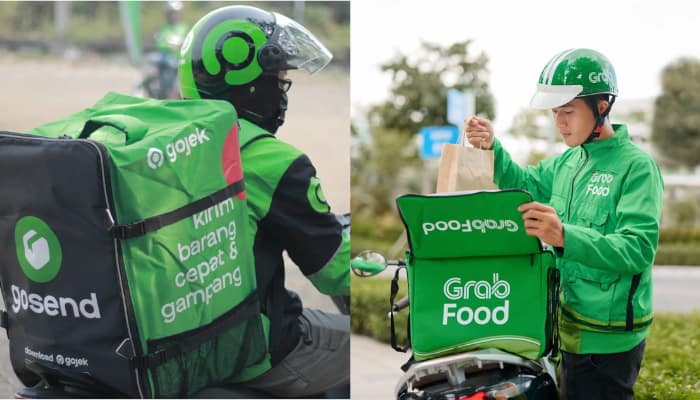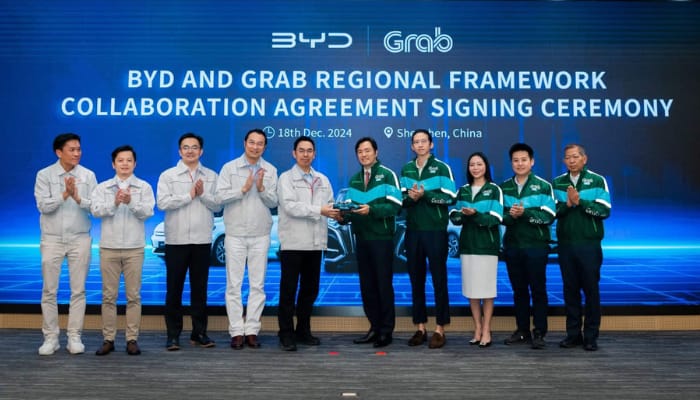Singapore – Amazon Web Services (AWS) has announced that regional superapp announced that Grab has selected AWS as its preferred cloud provider. With AWS, Grab is pursuing a technology-led strategy to accelerate growth across its mobility, deliveries and financial services verticals, including its new digibanks, while continuing to improve its operational efficiencies and reduce IT infrastructure costs.
Grab relies on AWS to serve 41.9 million monthly transacting users and over 13 million driver and delivery partners registered on its platform. Every second, Grab does over a hundred transactions, receives over 500k GPS pings and services over 50,000 ETA requests. AWS powers Grab’s critical compute, storage, networking and database functions.
By leveraging AWS’s resilient, secure, and elastic cloud, Grab accelerates innovation, rapidly launches new services and scales efficiently across its eight-country footprint- Cambodia, Indonesia, Malaysia, Myanmar, the Philippines, Singapore, Thailand, and Vietnam.
As Grab looks to balance growth with cost discipline, it is also using AWS Cloud to power the majority of its operations in Southeast Asia across verticals such as mobility, deliveries and financial services and entities, including its digibanks in Indonesia, Malaysia and Singapore.
By adopting AWS’s suite of cloud-based solutions, Grab has been able to gain agility and reduce operational costs. Grab uses analytics service AWS Clean Rooms, which enables secure, privacy-preserving data collaboration between different entities and organizations. Grab also leverages AWS’s purpose-built databases and has migrated more than 400 backend application services from traditional virtual servers to AWS Graviton2 processors to drive high performance, as well as cost and energy efficiency.
Moreover, on-demand transactions made by Grab customers were up 22% in the third quarter of 2024. To cater to this surge in demand for services, Grab uses Amazon Relational Database Service (Amazon RDS) as its transactional database coupled with Amazon DynamoDB. This ensures high availability, scalability, and adaptability of its platform to drive exceptional customer experience fueled by more accurate searchable data. With AWS, Grab seamlessly adapts to evolving customer needs by easily adjusting resources dynamically based on user demand. For example, during peak times like holiday sales, Grab can easily accommodate increased traffic to make transactions across the superapp seamless. Conversely, during off-peak periods, resources can be scaled down to save costs.
As it looks to accelerate growth with initiatives focused on affordability, high value offerings, and digital banking, AWS provides Grab with a stable and scalable infrastructure to support this rapid expansion. For instance, Grab continues to scale its revamped Advance Booking feature across the region. It also did a region-wide roll out of its improved Group Order feature and continues to drive adoption for it, making it easier for users to join the group order, track food delivery updates and split the bill. With AWS, Grab was also able to build and launch digital banks in Singapore and Indonesia, as well as GX Bank in Malaysia, which was launched in under 16 months, scaling rapidly to serve close to one million customers within the first year of launch.
Lastly, Grab is committed to being at the forefront of exploring how the latest AI technologies can better serve and respond to the needs of its users and partners. Catwalk, Grab’s machine learning (ML) model platform, is built on Amazon Elastic Kubernetes Service (Amazon EKS), and has been used to deploy over 1,000 AI models in production, such as route guidance and pricing. With Catwalk, Grab provides users’ real-time decision-making across its services and delivers personalized experiences like tailored restaurant recommendations, loyalty rewards, and bespoke financial services based on users’ preferences. In addition, Grab uses AWS’s custom-designed AWS Inferentia chips with specialized ML inference capabilities to cost efficiently power its AI-powered services, including map enhancements and fraud detection in its digital banks.
Grab also leverages AWS as the underlying compute infrastructure for its many AI initiatives. The superapp stores hundreds of petabytes of data and processes over 200 TB of data—the equivalent of 200,000 full-length movies—on AWS daily. This data forms the foundation of Grab’s advanced analytics, ML, and AI initiatives, with AWS powering innovations across the company’s services offerings.
Building on AWS’s compute foundations, Grab continues to develop and implement several AI-powered use cases, particularly to improve driver productivity and support merchant growth. By integrating large language models (LLMs) with point-of-interest data and historical customer notes, Grab has refined its last-mile guidance system for delivery partners. This enhancement provides drivers with more precise drop-off instructions, enabling them to complete more trips every hour, leading to higher earnings, while expediting food delivery to consumers. Additionally, Grab has rolled out a new feature that uses AI to create appetizing descriptions of food dishes in five of its eight markets. This has boosted order completion rates, bringing particular benefits to smaller, unique restaurants on the platform and enhancing the overall dining experience for customers.
Jeff Johnson, managing director for ASEAN at AWS, said, “AWS is proud to support Grab in its mission to drive innovation and enhance customer experiences across Southeast Asia. By leveraging AWS’s unparalleled operational performance, scalability, and cutting-edge technologies, Grab is able to deliver personalized, seamless transactions to millions of users throughout the region.”
He added, “As the leading cloud provider, AWS is uniquely positioned to help Grab optimize its price performance, boost operational efficiency, and continually evolve its broad suite of data-powered services. We’re excited to continue collaborating with Grab as it navigates the dynamic landscape of ecommerce and superapp development, ensuring it stays at the forefront of innovation in the digital economy.”
Meanwhile, Suthen Thomas Paradatheth, chief technology officer at Grab, commented, “At Grab, our strategy for growth is anchored on constant innovation to outserve the needs of our users and partners. This requires rapid experimentation, while ensuring security and stability, along with the ability to fully harness the potential of the latest tech like GenAI. We’re pleased to extend our partnership with AWS as our preferred cloud partner to continue to support us on this journey.”










